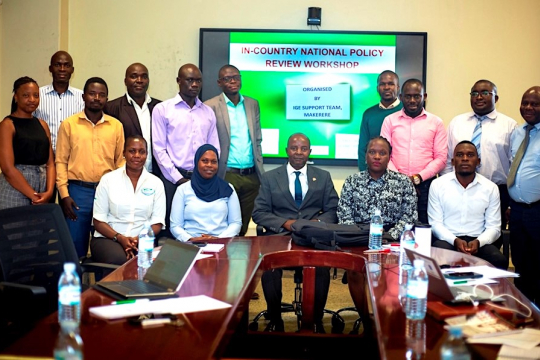Uganda’s participants in the Inclusive Green Economy (IGE) program, so-called IGE fellows, call for national policy instruments that have clear objectives and implementation plans. They also emphasize the need for information-based instruments, information disclosure, and a change of mindset among policy-makers.
This came up during the National Policy Review workshop organized by the IGE support team at the Environment for Development Center at Makerere University on 1st June 2022.
The IGE cohort of 2022 kicked off in Naivasha Kenya with online training and now conducting these policy review exercises.
The overall objective of the workshop was to strengthen the collaboration between academia and practitioners for more evidence-based policy-making to achieve a transition to an Inclusive Green Economy.
The workshop reflected on the IGE vision, strategies, and programs and how the National Policy Review exposes the gaps in the existing policy instruments.
The IGE program focuses on training, peer learning, and the exchange of ideas.
“Policy review in this context looks at the existing instruments in the country to address environmental issues,” said the Director of EfD-Mak Center Professor Edward Bbaale.
The participants observed among others that the national forest cover has been damaged in many aspects by human activities but that this fact is not well researched.
The draft NPR document on the three themes, fossil fuel, forest loss, and plastic pollution in the country was presented and discussed by the IGE fellows. See the attachment for the details of the different themes, discussions, observations, and recommendations.
Compiled by:
Jane Anyango
Communication Officer
